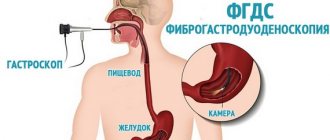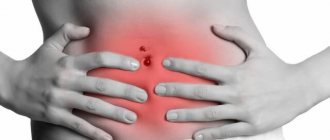Causes of the disease
Taste in the mouth can be a sign of an inflammatory process or an infectious disease of the sinuses, upper respiratory tract, tongue and oral cavity, that is, it is a symptom of a wide variety of pathologies in the human body. An unpleasant taste may indicate a disease of the gastrointestinal tract. Taste appears most often with the following pathologies:
- Gastroesophageal reflux disease.
- Esophagitis.
- Peptic ulcer disease.
- Flatulence.
In addition, the following factors can trigger the appearance of a taste in the mouth:
- Dehydration.
- Infections and pathogenic microorganisms.
- Various drugs.
- Erosion of the oral cavity.
- Failure to comply with oral hygiene rules.
- Pathological processes in the sinuses.
- Sjögren's syndrome.
- Smoking.
- Oncological neoplasms.
- Viruses.
Salty taste in mouth
With infectious diseases of the salivary glands, saliva may acquire a salty taste. Sometimes such a symptom appears in infectious and inflammatory diseases of the upper respiratory tract, since the mucus produced in large quantities during sinusitis also enters the oral cavity. After recovery, the salty taste in the mouth will disappear on its own.
If, in addition to the salty taste, you are also bothered by dry mouth, then most likely this indicates dehydration. At the same time, it is not enough to quench your thirst once; you need to drink at least 1.5 liters of liquid daily.
Poor oral hygiene can also cause a salty taste. This is due to the fact that the plaque that forms on the surface of the teeth and tongue has a salty taste. Therefore, it is necessary to thoroughly brush not only your teeth, but also the surface of your tongue at least 2 times a day.
Very rarely, a salty taste in the mouth appears as a result of taking certain medications, for example those used in the treatment of thyroid diseases and chemotherapy in oncology.
Serious pathologies
There are also more serious pathologies that can cause a taste in the mouth. If this phenomenon occurs regularly and over a long period of time, you should consult a doctor, as this may indicate the development of diseases such as:
- Severe infection.
- Stroke.
- Oral cancer.
Often an unpleasant taste appears in a woman during pregnancy. This occurs due to the active production of a hormone that rebuilds the body to its new state.
Let us consider below the main causes of taste in the mouth in more detail.
Treatment of bitterness in the mouth in the morning
When there is bitterness in the mouth, it is necessary to treat the disease, and not to suppress the symptom, so the doctor prescribes drugs that can restore the functionality of the affected organ, and thus eliminate the symptom of bitter taste.
Drugs are selected individually
Medicines for bitterness in the mouth
Drugs that eliminate bitterness in the mouth:
- Essentiale forte. Liver regeneration agent.
- Sodium. It is prescribed if there is bitterness in the mouth and there are no other symptoms of gastrointestinal damage.
- Gepabene. Prescribed for the treatment of inflammatory liver pathologies and bile ducts. Provides a choleretic effect.
- Allohol. Plant-based medicine. Shows choleretic effect. Used for pathology of the biliary tract with cholecystitis, intestinal dysfunction.
- Liobil. Natural based product. Has choleretic properties. The medicine is effective for cirrhosis and other diseases of the liver, pancreas, and cholecystitis.
- Holosas. A drug with a choleretic effect for the treatment of cholecystitis. Used by both adults and children.
Diet
Maintaining a healthy diet will help eliminate the bitter taste in your mouth. You should exclude from your diet:
- sweet;
- smoked;
- roast;
- flour.
Porridge, fruits and vegetables will improve digestion, and dairy products will restore the necessary microflora. Inconsistent stool can cause poisoning of the body and be the root cause of a bitter taste in the mouth. It is necessary to monitor its frequency, but frequent enemas are not recommended. A bitter taste in the mouth associated with gum pathologies or during dental therapy can be removed with toothpaste and mouthwash.
No ads 3
Juice therapy
Treatment with juices is an effective procedure for cleansing the body, improving digestion processes and stabilizing intestinal microflora. When rinsing and internal use, it is necessary to use freshly squeezed potato, orange, lemon, and carrot juices.
When taken orally, saliva is released, which causes the microflora in the oral cavity to be restored, and accordingly, the bitter taste will go away much faster. Juices also speed up the digestion of food, and bitterness, as a result of gastric dyspepsia, gradually disappears.
carrot juice
Carrot juice contains pectin elements. They cleanse the intestines and improve digestion. The juice contains a large amount of beta-carotenes, which are used to synthesize vitamins. Biflavonoids prevent fatty changes in the liver.
Carrots, like onions, have phytoncides in their structure; they help cleanse the body of parasites and restore intestinal microflora. These qualities of juice are the main ones for curing bitterness in the mouth, since giardiasis and other parasitic infections are the root cause of bitterness. The juice is absolutely harmless. Consumption is possible in large quantities.
Beet juice
In addition to pectins, which block pathological processes and help cleanse, the juice contains organic acids, minerals and betaine. The latter blocks the accumulation of fats in all organs and prevents fatty changes in the liver. Beet juice is drunk for the treatment of liver diseases and common bile duct, and they are usually the root cause of bitterness in the oral cavity.
Doctors advise mixing with carrot juice in a volume of one part of beets per ten parts of carrots.
Cucumber juice
Helps cleanse the entire body. Includes a combination of vitamins A, PP, C and B, microelements that normalize the balance of minerals. The best drink for cleansing the body, it has a positive effect in eliminating the bitter taste in the mouth that appears due to the accumulation of toxins. It is recommended to drink with carrot and beet juice.
Traditional medicine
Lemon with honey, medicinal plants, and flaxseed are successfully used for bitterness in the mouth.
- Recipe No. 1. Pounded lemon mixture with honey and olive oil (in equal proportions) is eaten 30 minutes before meals to eliminate the bitter taste and prevent the formation of plaque on the tongue. For 1 meal, eat 1 tablespoon of the medicinal mass.
- Recipe No. 2. Berries and medicinal plants are brewed in hot water. They are used to remove bitterness and drink everyday like coffee or tea. Calendula petals are brewed (1 tablespoon of crushed flowers in 200 ml of boiling water) and sipped before meals, and infusions of rose hips and viburnum are drunk in any volume, if there is no allergy or intolerance.
- Recipe No. 3. To eliminate bitterness in the mouth, use ground horseradish mixed with milk in proportion to 1/10. The mass is heated and left in a thermos for up to 20 minutes. Drink 3 sips before meals for 7 days.
- Flaxseed jelly. Pour 2 teaspoons of ground seeds with hot water. After 2 hours, the liquid becomes thicker and can be drunk. Take 1 tablespoon of seeds per 200 ml of water. Duration of therapy – 5 days, 100 ml daily.
You can remove the bitterness from your mouth that appears after eating with the help of flax seeds.
Associated symptoms
An unpleasant, strange taste in the mouth is an alarming symptom and may indicate the presence of pathology in the human body. As a rule, this sign does not appear as an independent symptom, but is accompanied by certain concomitant phenomena.
If a patient has a disease of the gastrointestinal tract, it tends to spread to other organs. To clarify the diagnosis, it is necessary to pay attention to other symptoms, for example:
- Flatulence.
- Pain in the stomach.
- Heartburn.
- Cough.
- Impaired intestinal motility.
Problems with the salivary glands
In case of problems with the salivary glands, the picture of the course of the disease is somewhat different. In this case, the person notices the following symptoms:
- Why does the lower abdomen hurt after defecation in women?
- Dry mucous membrane.
- Difficulty opening the mouth.
- Increased body temperature.
- Painful sensations in the face and mouth.
- Redness on the neck and face.
- Swelling of the face and neck.
Diseases of the nose and sinuses
Diseases of the nose and sinuses also have specific symptoms. For such pathologies, typical manifestations are:
- Increased body temperature.
- Fatigue.
- Nasal congestion.
- Tonsillitis.
- Unpleasant sensation in the throat.
With serious illnesses, the symptoms are more pronounced and more intense. With a stroke, mouth cancer and severe infection, in addition to an unpleasant taste, other symptoms may appear:
- Sudden and unjustified weight loss.
- Increased body temperature.
- Depressed breathing.
- Loss of the senses, namely hearing, vision and smell.
Why there is a taste in the mouth, a doctor should figure it out.
Sour taste in mouth
Quite often it is not a sign of pathology. It can appear when eating a sour product and be a consequence of the aftertaste. You can get rid of this condition by rinsing your mouth with clean water and washing away any remaining food from your tongue.
The cause of a sour taste in the mouth can also be oxidation of installed crowns and dentures. This can happen as a result of using low-quality materials for prosthetics. Prolonged wearing of inferior materials in the mouth leads to damage from saliva, food and metabolism, and bacteria.
Medicine also describes cases where a sour milky taste was the result of problems in the gastrointestinal tract. Diseases of the stomach and esophagus can provoke the symptom, for example:
- Peptic ulcer disease.
- Gastritis.
- Diaphragmatic hernia.
- Gastroesophageal reflux disease.
Digestive disorders lead to serious changes in the body. In addition to the sour milk taste in the mouth, the patient experiences: weakness, nausea, belching, fatigue. As well as pain in the abdominal area.
What other bad taste is there in the mouth?
- What to drink for diarrhea - causes and symptoms of diarrhea, groups of drugs, decoctions and infusions for quick treatment
Causes of bad taste in mouth
Photo 1: An unpleasant taste in the mouth can only be felt on the tongue. May bother you immediately after waking up or only after eating. The reasons for the appearance of bitterness, sweet sour, salty taste may vary depending on exactly when and how it is felt. Source: flickr (galactichero).
Bad taste in mouth in the morning
Every person experiences an unpleasant taste in the mouth in the morning. It appears due to the activity of bacteria that accumulate under the tongue and release sulfur. Usually, to get rid of this problem, it is enough to carry out oral hygiene procedures .
Bitterness
The causes of morning bitterness in the mouth can be:
- Problems in the functioning of the gallbladder or pathological changes that provoke the reflux of bile into the esophagus. The feeling of bitterness can be caused by diseases such as cholecystitis, biliary dyskinesia, acute cholangitis, and gall bladder cancer.
- Excessive evening food intake , which leads to difficult digestion and putrefactive processes.
- After taking antibiotics, a bitter taste may appear in the morning. This is explained by the process of destroying not only pathogenic but also beneficial bacteria by the drug. A concomitant disease is dysbacteriosis.
Sour taste in mouth
A symptom of a gastrointestinal disease such as gastritis is a sour taste in the mouth in the morning. In addition to the inflammatory process of the gastric mucosa, acid factors in the tongue can be :
- Gastroesophageal reflux is a common disease accompanied by the release of hydrochloric acid into the esophagus. This pathology occurs due to prolonged stay in a horizontal position.
- A stomach ulcer is accompanied by a sour taste, as this disease is characterized by increased production of gastric juice.
- If the functioning of the cardium (the valve that prevents gastric juice from entering the esophagus) is impaired, a bright sour taste is observed. A concomitant disease is chalazia cardia.
Note! A sour taste in the mouth after waking up may appear after injections of nicotinic acid.
Sweet taste
Important! If you experience a sweet taste after a night's sleep, you should definitely consult a doctor. Sweetness in the mouth can be a symptom of diabetes.
Causes of unpleasant taste after eating
The appearance of an aftertaste after eating can be due to various factors.
Photo 2: Using metal spoons and forks causes a metallic taste. Source: flickr (Serega062).
The appearance of acid in the mouth may indicate the following diseases:
- chronic or acute stage of gastritis;
- diseases of the pancreas, such as pancreatitis;
- diseases of the oral cavity: caries, periodontal disease.
Causes of unpleasant taste on the tongue
In the oral cavity there are many bacteria and fungi that multiply intensively as a result of epithelial renewal, feeding on dead cells.
Important! The appearance of an unpleasant odor accompanied by a white coating on the tongue indicates a weakening of the body's immune system.
Bitterness that occurs directly on the tongue indicates diseases of the gastrointestinal tract. Concomitant factors for the appearance of a bitter taste are :
- hormonal disbalance;
- infection by parasites of the gastrointestinal tract;
- poisoning with drugs or food;
- improper oral hygiene.
A clear sign of dehydration will be the appearance of a salty taste on the tongue . This is due to the rapid removal of minerals from the body.
Bitter taste
Almost everyone experiences a bitter taste in their mouth at least once in their life. This is a fairly common occurrence. This symptom may indicate pathologies of the gallbladder and liver, as well as diseases of the esophagus and intestines. Exacerbation can occur with the following diseases:
- Intoxication.
- Cholelithiasis.
- State of stress.
- Taking certain medications.
Symptoms usually worsen after a person has eaten, in some cases they occur in the morning. If bitterness in the mouth appears regularly, you need to consult a specialist to identify the cause and prescribe appropriate treatment.
Causes of bitterness in the mouth after sleep
A sign that may be of concern if you have the following diseases:
- gastroesophageal reflux;
- gastric dyspepsia;
- cirrhosis of the liver;
- cholelithiasis;
- functional disorders of the liver, gallbladder and its ducts.
Long-term use of antibiotics and other medications often leads to a deterioration of the intestinal microflora, which leads to gastric discomfort and the appearance of bitterness in the mouth. Other causes of bitterness in the mouth are discussed below.
Products
An unpleasant taste in the mouth in the morning can be caused by certain foods, for example, fatty meats, spicy ketchups, and bitter foods. Excluding them from the diet restores the disturbances, as a result, the bitterness in the mouth after eating gradually disappears.
Inflammatory processes in the oral cavity
When a bitter taste is accompanied by an undesirable aroma from the mouth, you should think about inflammatory disease of the gums or teeth. In this case, visiting a dentist will help.
If you have bitterness in your mouth, you can contact your dentist to diagnose the presence of inflammatory processes in the oral cavity.
Hormonal disbalance
Hormonal disorders, that is, disruptions in the production of the hormone estrogen, lead to morning bitterness and dry mouth during pregnancy. Hormonal changes can lead to changes in the perception of smell and taste, which are typical at the beginning of pregnancy and disappear later.
No ads 1
Poisoning
Poisoning with vapors of heavy metals, for example, mercury, copper or lead, is very dangerous. If a bitter aftertaste occurs after poisoning with such substances, you should immediately consult a doctor. Often the root cause of a bitter feeling is strong daily emotional overload.
Diseases
Certain pathologies can also cause bitterness in the mouth. For example, Alzheimer's disease, strokes and diabetes can change the functioning of taste receptors. After a traumatic brain injury, changes in the sensory organs may occur, and a bitter taste may remain in the mouth for a long time.
Taking medications
A bitter taste may occur after taking one or more medications. Taste disturbance can be the main side effect of various drugs:
- for chemotherapy,
- antihistamines,
- antibiotics,
- to lower blood pressure.
Vitamin and mineral deficiency
To accurately perform all body functions, including differences in tastes and smells, vitamins and nutrients are needed. Zinc is important for the body, but either too much or not enough can cause a bitter taste in the mouth.
Aging
During the aging process, the human body loses many of its existing taste receptors, and for this reason, most older people begin to feel bitterness in the mouth. A balanced diet (consuming all the elements the body needs with food) and an accurate choice of medications can improve the situation.
Purulent taste
Most often, a purulent taste appears in the mouth with a palatal abscess. Medicine records this symptom in the following dental pathologies:
- Alveolitis.
- Periodontitis.
- Periodontitis.
The taste of pus may appear not only in the mouth, but also in the throat. Diseases of bacterial origin such as tonsillitis, pharyngitis, laryngitis, adenoids, can provoke the formation of ulcers.
What else can cause the taste of blood in the mouth?
- It can be triggered by injuries to the mucous membrane - if the saliva turns red, you need to conduct a thorough examination of the oral cavity. Damage to the mucous membrane can cause biting of the inside of the cheek or tongue.
- Dental diseases are the most common cause of blood in the mouth. This could be gingivitis, stomatitis, periodontitis, or any other ailment that causes inflammation.
- Taking certain medications - antibiotics, antihistamines, iron supplements and vitamins - causes a metallic taste, which is often confused with the taste of blood.
- Poisoning with heavy metals - mercury, lead, copper or zinc.
- Severe pathologies of internal organs - pneumonia, tuberculosis and malignant neoplasms of the respiratory tract. Streaks of blood or fresh blood appear in the saliva of patients when they cough, after emotional or physical stress.
Sweet taste in mouth
The taste appears after a person has eaten something sweet, which is logical and normal. This phenomenon is considered pathological if a sweet taste appears after a person has eaten something salty or spicy. This symptom is characteristic of the following diseases:
- Chemical poisoning.
- Poor insulin synthesis and impaired carbohydrate metabolism, characteristic of diabetes mellitus.
- Disruption of nerve endings.
- Smoking.
- Stressful situations.
- Infectious diseases of the respiratory tract and various dental pathologies.
Soda taste
This symptom may indicate a disorder in the biliary tract and liver. In addition, the taste of soda in the mouth indicates pathologies in the intestines. If the taste of soda is combined with sweetness, this indicates an exacerbation of diabetes.
The causes of taste in the mouth in women are presented below.
- The occurrence of enterocolitis in newborns: mechanism of development and treatment
Other factors that can lead to a soda taste include: pregnancy, overeating, taking certain medications, taking hormonal medications, etc. When there is an excess of iodine in the body, a characteristic taste also appears. This condition is usually accompanied by vomiting and fever.
What does the taste of iron in the mouth indicate?
Sweet taste
At first glance, it may seem that sweet taste is not dangerous because it can be pleasant. Our brain associates sweet taste with positive stimuli. However, don't be fooled because if you have a sweet taste in your mouth for no apparent reason, it could be a sign that your blood sugar levels are off, which is a recipe for diabetes.
This could be a metabolic malfunction or some kind of liver pathology, a violation of the taste buds due to stress or inflammation of the ternary nerve. Be sure to consult with your doctor, who will conduct a basic examination and refer you to specialists.
Metallic taste
This is a fairly common phenomenon, the causes of which can be very diverse. Often, a metallic taste in the mouth appears when drinking large amounts of mineral water, which contains iron. The same goes for drinking untreated tap water. If you eat from metal utensils, a specific taste may also appear. However, the most common factor leading to this symptom is the use of certain medications.
Dental crowns can also give a metal or plastic feel to your mouth. If you do not follow hygiene rules when wearing dentures, you may also experience an unpleasant taste and odor from your mouth.
A metallic taste can also occur for less harmless reasons. There are a number of pathologies that can lead to this condition:
- Disruption of the gastrointestinal tract.
- Anemia.
- Hypovitaminosis.
- Oral diseases.
In this case, to eliminate the symptom, you will need to treat the cause of its occurrence.
Causes of dry mouth
There can be many reasons for dry mouth. The most common of them:
- Dehydration
An increased need for fluid consumption can be observed in the hot season, with increased sports loads, as well as in painful conditions: high fever, vomiting or diarrhea.Dry mouth can occur if you don't drink enough water or have lost a lot of fluid.
- Smoking
Cigarette smoke with prolonged exposure negatively affects the mucous membranes of the mouth. The mucous membrane dries out and saliva production decreases. - Stress
When the body is under stress, a large dose of adrenaline is released, which causes the salivary glands to block. - Using medications
Dry mouth can be a side effect when taking medications. This symptom can be caused by: antihistamines, decongestants, antihypertensive drugs, antidepressants. - Mouth breathing
In case of ENT diseases such as runny nose, sinusitis, deviated nasal septum, normal breathing through the nose becomes difficult and the person breathes through the mouth. In this case, the mucous membrane dries out quickly. - Hormonal changes
The feeling of dry mouth often occurs in women during or after menopause as a consequence of hormonal changes. - Diseases
Dryness of the oral mucosa can also be a manifestation of serious diseases.These are diseases such as:
- diabetes;
thyroid diseases;
- anemia;
- avitaminosis;
- diseases of the gastrointestinal tract, liver;
- Hodgkin's disease (lymphogranulomatosis);
- Parkinson's disease;
- HIV AIDS;
- Sjögren's disease.
- Therapy for cancer
The functioning of the salivary glands may be impaired during radiation therapy to the head and neck. Chemotherapy drugs, which are used in the treatment of cancer, also have an effect. - Eating habits
Dry mouth can appear when consuming foods that lead to dehydration: sweets, salty foods, coffee, tea. - Damage to the salivary glands
Malfunction of the salivary glands can occur as a result of trauma to the oral cavity.
Taste of mold
Aspergillosis can cause a moldy taste in the mouth. This infectious disease affects the lungs, skin, sinuses, etc. The fungus can spread not only in food, but also in unclean, dusty rooms. The disease may cause a wet cough, general malaise, shortness of breath, chills, decreased appetite and sleep disturbances.
To prevent the appearance of a taste in the mouth, it is necessary to strictly observe the rules of personal hygiene in general and the oral cavity in particular. If the taste is persistent and its severity increases, you should consult a doctor.
Most often, this symptom bothers you in the morning. If the phenomenon occurs rarely, there may be no danger to health, but when an unpleasant taste in the mouth appears regularly, this may indicate serious disorders and diseases.
Why does my mouth have an unpleasant taste?
The oral cavity, as you know, is moistened with saliva. In a healthy body, this liquid has neither a characteristic taste nor smell, but some diseases of the teeth and surrounding tissues can provoke their appearance. If in the morning the unpleasant taste in the mouth does not disappear for a long time even after hygiene procedures, caries, periodontitis, stomatitis, and infectious diseases of the gums can be suspected. In addition, the symptom in question often occurs as a result of chronic diseases of the throat (pharyngitis, laryngitis) and nose (sinusitis, rhinitis) with the release of purulent masses. Usually, after sanitation of the oral cavity and treatment of detected pathologies, such signs disappear and no longer bother.
Persistent unpleasant taste in the mouth – causes:
- diseases of the gastrointestinal tract;
- changes in acidity in the mouth and esophagus;
- lack of fluid in the body;
- diabetes;
- poisoning;
- taking medications;
- nutritional features.
Let's take a closer look.
Unpleasant taste in the mouth: bitterness
An obsessive bitter taste on the tongue indicates problems with the outflow of bile. Under normal conditions, it should be completely excreted through the intestines, but if the ducts are clogged, bile is thrown into the stomach, and then into the esophagus. Thus, stagnation of bile causes bitterness in the mouth, especially noticeable in the morning after waking up.
Unpleasant salty taste in the mouth - causes
Frequent or prolonged dehydration inevitably results in the accumulation of salts in the body. This factor provokes the appearance of a corresponding taste in the oral cavity. It should be remembered that a lack of fluid is fraught with dangerous consequences, such as oxygen starvation of cells, disturbances in the functioning of the kidneys, bladder, and reproductive system.
Why does my mouth have an unpleasant sour taste?
The three most common causes for this symptom are:
- oxidation of metal crowns on teeth;
- side effects of medications;
- gastritis and stomach ulcers.
In the latter case, the appearance of an unpleasant taste on the tongue is associated with a violation of acidity, namely, an increase in the concentration of hydrochloric acid in the gastric juice. As a result, heartburn and sour belching appear. Further development of the disease is fraught with the formation of trophic ulcers and esophageal hernia. In addition to acid, patients sometimes feel the taste of hydrogen sulfide.
Unpleasant taste in mouth: sweetness
Naturally, this symptom signals insufficient processing of glucose in the blood and its accumulation. There can be only two reasons - diabetes and pancreatitis. A low concentration of insulin in the body leads to excess sugar content and a persistent unpleasant taste of sweetness.
Pregnancy and bad taste in the mouth
A lot of expectant mothers complain about the appearance of various kinds of tastes on the tongue and even the appearance of sore teeth. This usually indicates problems with the liver and stomach, since it is much more difficult for the digestive system to cope with stress during pregnancy, especially in the last stages. In addition, motherhood is associated with hormonal changes and increased
progesterone levels. It has the ability to relax the muscles of the stomach, due to which its contents are thrown into the esophagus, leading to the problem described.
Causes of a bitter taste in the mouth in the morning
The reasons for the appearance of bitterness in the mouth in the morning after a night's sleep are associated with the emotional or physiological state of the body. Bitter saliva can be caused by:
- A reaction to spicy, fatty, fried food eaten the day before.
- Evening overeating before bed.
- Very long breaks between meals.
- Smoking, drinking alcohol, drinking large doses of coffee.
- Pathological processes occurring in the gastrointestinal tract.
- Stressful condition.
- Dental problems.
- Endocrine diseases, including diabetes.
- Improper activity of the gallbladder.
- Consumption of foods that cause a choleretic process.
- Pancreatitis.
This is not a complete list of factors on the basis of which a bitter taste appears in the mouth in the morning. But according to statistics, the first place among the causes of such symptoms is occupied by liver diseases and bile stagnation.
Improper liver function
Bile is necessary for the body to properly digest food. Digestive fluid is produced by liver cells and sent to “ripen” in the gallbladder. After the process is completed, she must begin her main task.
With various abnormalities in the functioning of the liver, biliary tract, and gallbladder, bile refluxes into the esophagus. Stagnation of bile secretion occurs due to obstruction in the ducts. The release of new bile occurs constantly, creating pressure that pushes the stagnant liquid, which has a characteristic bitter taste, into the stomach and then into the esophagus. This is why there is a bitter taste in the mouth in the morning.
Pathologies of the gastrointestinal tract
An unpleasant taste in the mouth can be a harbinger of diseases such as:
- Stomach and duodenal ulcers.
- Colitis.
- Gastritis.
- Reflux disease.
- Dyspepsia.
The most common of them are dyspepsia and reflux disease. With gastric dyspepsia, the amount of hydrochloric acid increases, and motor skills do not work in the desired rhythm. A feeling of heaviness, fullness in the stomach, and discomfort appears even with small meals. After taking a number of medications or getting into a stressful situation, the patient’s condition worsens significantly.
In the case of reflux disease, the stomach loses its ability to cleanse itself. Not only gastric juice, but also the contents of the stomach enter the esophagus. Nausea, noticeable bloating, and severe chest pain appear.
Other reasons
Severe bitterness in the mouth in the morning can appear even if the liver is healthy and there are no problems with the gallbladder. This means that a person:
Oral stomatitisInflammation of the oral mucosa: stomatitis or periodontitis.
- Hormonal imbalance or failure: diabetes, thyroid problems, pregnancy.
- A stressful condition that causes muscles to contract, which can narrow the ducts, which slows down the movement of any fluid, including bile, throughout the body.
- Side effects from taking choleretic drugs, antibiotics and other drugs.
Bitter taste in the mouth - what does it mean?
An unpleasant, bitter taste in the mouth and tongue sometimes appears spontaneously, and sometimes bothers you for a long period. For example, in case of poisoning or disruption of the endocrine system, bitterness is felt in the oral cavity for a long time, but a change in taste that occurs shortly after eating or certain medications passes quickly.
In many situations, such a complaint is typical for people suffering from liver or gallbladder pathology, so you should pay attention to the problem present. The period when the symptom occurs depends on what is causing it.
- unpleasant taste in the morning - the source of discomfort is hidden in diseases of the liver and biliary tract;
- bitterness in the mouth after heavy exertion - if physical stress is accompanied by pain in the right hypochondrium, this indicates hepatopathy;
- a change in taste perception after dental intervention is a sign of an allergic reaction to the materials used for treatment, especially when there are areas of redness or rash on the gums;
- bitter taste after eating fatty foods or when overeating - this symptom is characteristic of diseases of the liver, gall bladder and tract;
- discomfort that constantly occurs after eating - indicates pathology of the stomach and duodenum;
- bitter taste accompanied by heartburn is a characteristic sign of GERD (gastroesophageal reflux disease);
- a constant feeling of bitterness in the mouth - requires careful diagnosis, as it may indicate the development of gastrointestinal cancer, calculous cholecystitis, diseases of psychogenic or endocrine origin;
- a short-term bitter sensation on the tongue - appears due to the use of medications or due to nervous stress.
Related article: taste of blood in the mouth - what to do?
Bitter experience
If you are tormented by a bitter taste in your mouth, know that among the reasons that cause such a sore throat, problems with the liver and biliary tract are in first place: cholecystitis (inflammation), stones and dyskinesia (impaired muscle motility). The fact is that with the proper functioning of all organs and systems, bile (a biologically active liquid that is produced by our main filter) must enter the duodenum. However, all these diseases prevent its proper promotion and disposal.
As a result, the liquid stagnates in the bile ducts, accumulates there, begins to be thrown into the stomach, from there into the esophagus, and then into the oral cavity. This process results in a bitter taste on the tongue.
It’s not difficult to remove bitterness, just stop eating foods that provoke excess bile production - these are any fatty, fried, pickled, spicy and over-salted foods.
In a word, everything is delicious. But keep in mind that the healing process does not end there. After all, bitterness is not the main problem, but only its symptom. Therefore, it will not be possible to do without consulting a gastroenterologist. He will do an ultrasound and gastroscopy, and then prescribe appropriate treatment.
Causes of bitterness in the mouth
There are many reasons why a feeling of rancidity appears. An unpleasant sensation sometimes occurs due to an incorrect diet or medication. The main reasons that cause bitter taste in the mouth in both women and men are:
- dental diseases - inflammation of soft tissues and mucous membranes lead to changes in taste perception; in addition, this condition sometimes occurs after tooth extraction;
- pathology of the gastrointestinal tract - all kinds of inflammatory and infectious processes, accompanied by nausea and coating on the tongue, affecting organs from the esophagus to the intestines;
- different types of hepatopathies - all kinds of liver dysfunction cause pain in the right hypochondrium due to distortion of the processes of bile formation and its transport along the pathways;
- pregnancy - hormonal changes in the female body can lead to short-term changes in taste;
- poisoning – intoxication with salts of heavy metals leads to serious disruptions in the functioning of the body, therefore they require immediate medical supervision;
- an increase in blood sugar - a bitter taste in the mouth is considered a symptom of diabetes, along with a decrease in sweat production, dizziness and a feeling of heat in the extremities;
- gallbladder disease - with increased production of bile, it enters the stomach, which causes a bitter or sour taste in the mouth, and is also accompanied by weakness and deterioration in well-being;
- endocrine pathology - disruption of the thyroid gland and adrenal glands leads to changes in hormonal balance, while the synthesis of adrenaline increases, which causes spasm of the smooth muscles of the bile ducts, and bile is released;
- use of medications – taking certain groups of medications (antibiotics, antihypertensive and antidiabetic drugs, hormonal drugs) causes a rancid taste in the mouth;
- smoking - following this bad habit for many years leads to the fact that tobacco changes the perception of receptors and taste sensations;
- other diseases - Sjögren's syndrome, malignant neoplasms, amyloid dystrophy cause bitterness in the mouth.
Causes of bitterness in the mouth in the morning
- Diseases of the gallbladder or bile ducts. It is bile that gives the unpleasant taste, which is why the pathology may be associated with increased production or stagnation of this fluid.
- Liver problems. One of the functions of the liver is the production of bile, which enters the gallbladder and is involved in the digestion process. If these organs are overloaded and do not function properly, then some of the bile enters the esophagus. This leads to unpleasant sensations in the morning.
- Diseases of the stomach and intestines. With such ailments, a bitter taste is a secondary symptom. It is typical for patients with gastritis, duodenitis, gastric or duodenal ulcers.
- Pregnancy. Some women, while carrying a baby, notice a bitter taste in their mouth in the morning. This is due to the fact that the growing uterus puts pressure on the abdominal organs, which makes it difficult for them to work. The problem is also affected by hormonal levels changing during pregnancy.
- Non-compliance with diet. Eating heavy food that overloads the organs of the gastrointestinal tract, causing stagnation of bile and, accordingly, a bitter taste in the mouth.
- Inflammatory processes in the oral cavity. Dental diseases (gingivitis or abscesses near the teeth) may be accompanied by the appearance of bitterness in the mouth, which is especially strong in the morning.
- Taking certain medications. Often, problems with the liver and gallbladder occur if you take anti-inflammatory drugs or antibiotics for a long time. Medicines for parasitic infections also harm the liver. After such treatment, the described symptoms also occur.
Most often, severe bitterness after sleep is a sign of a serious illness. To determine the causes of the problem, you need to analyze your general condition, eating habits and additional symptoms. If it is impossible to identify negative factors on your own, then you should undergo a medical examination.










